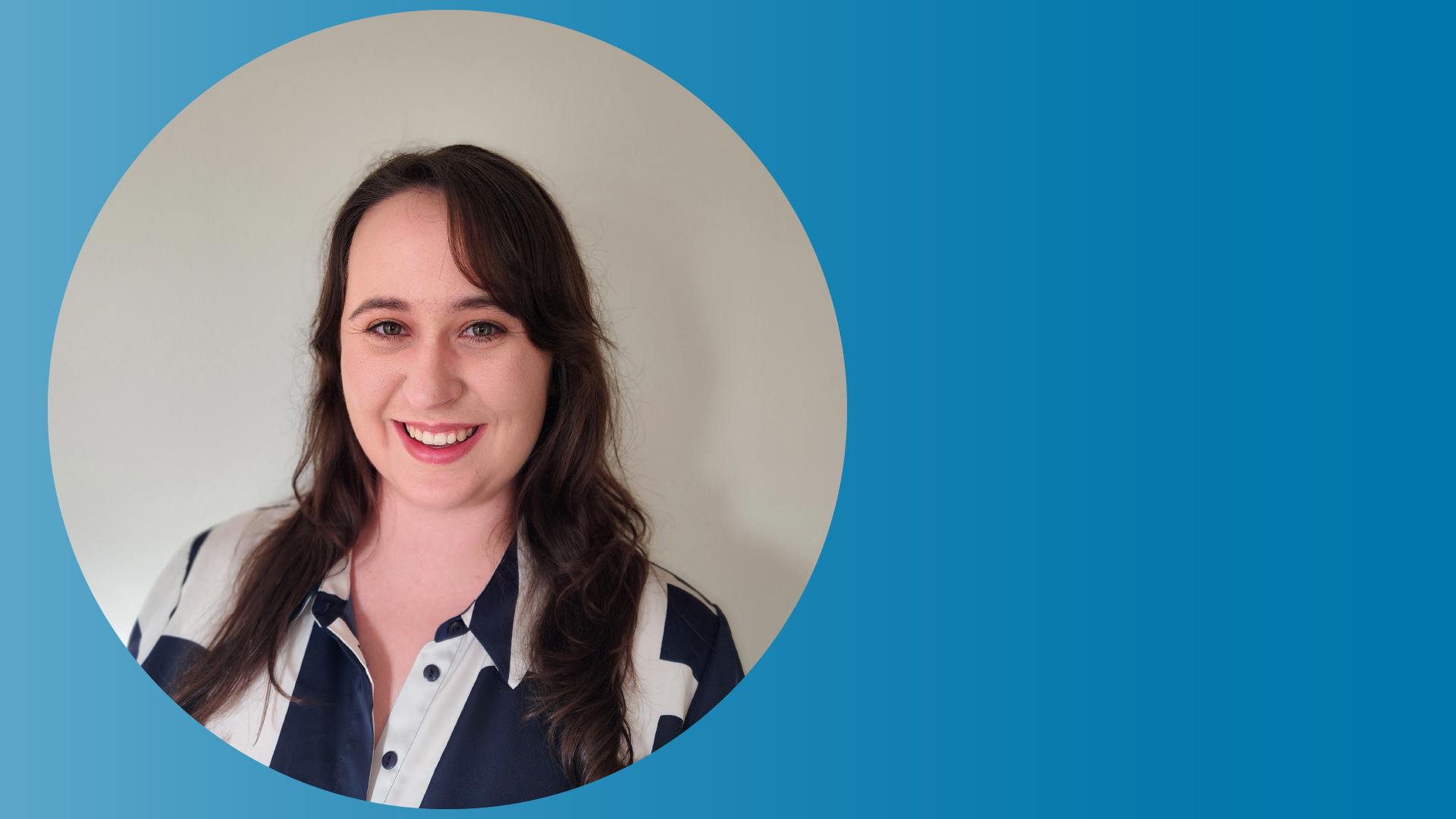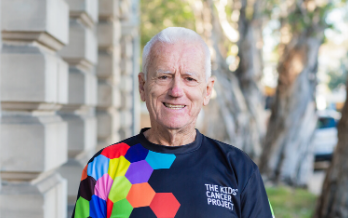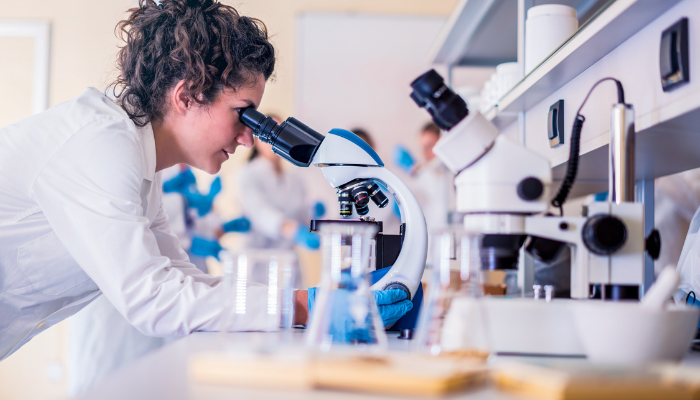Col Reynolds Fellow, Dr Evangeline Jackson

Recipient: Dr Evangeline Jackson
Institute: University of Newcastle
Funding: $510,000 October 2024 - September 2027
Dedicated to finding a solution for the currently incurable diffuse intrinsic pontine glioma (DIPG), Dr Evangeline Jackson has been welcomed into The Kids’ Cancer Project family as a Col Reynolds Fellow in 2024.
Harnessing cellular and molecular biology techniques on patient-derived cell lines in vitro, and their establishment in vivo, Dr Jackson is working tirelessly to find new treatments for DIPG.
Dr Jackson spoke with The Kids’ Cancer Project to give an outline of her research, what it means to be a Col Reynolds Fellow and shares a special message with our donor communityWhat inspired you to pursue a career in childhood cancer research?
My family has been affected by cancer, especially breast cancer and leukaemia. When I was only six my mother was diagnosed with breast cancer, however, she was lucky in that it was a misdiagnosis, and her abnormal cells could be surgically removed. Unfortunately, her identical twin sister was not as fortunate, and she was diagnosed with breast cancer a few years later. It was heartbreaking seeing the how she suffered and the impact on our family. Thanks to modern medicine she is still with us today, but both my aunt and my mum still wear the scars.
Conducting research into childhood cancer is particularly important to me as we are supporting kids who can’t always advocate for themselves, particularly those with aggressive cancer types that have low survival rates.
These kids deserve a chance at a happy and comfortable life with the best opportunities possible available to them.
What is your current childhood cancer research project?
My current childhood cancer research project is in diffuse midline glioma (DMG), which is a devastating childhood brain cancer diagnosed in the brainstem or the pontine region of the brainstem where it is termed diffuse intrinsic pontine glioma (DIPG). DMG is an extraordinarily complex type of cancer where, even in the same tumour, not all cells are alike and there are many differences between patients.
Survival after diagnosis is typically only 12 months, with the only available treatment being palliative radiotherapy. My research focuses on harnessing cellular and molecular biology techniques, coupled with high-resolution quantitative proteomics* to find new treatments for DMG/DIPG. This utilises patient-derived cell lines in vitro as well as their establishment in vivo to effectively model patient disease, necessary for translation to the clinical setting.
* Proteomics is the study of the interactions, function, composition, and structures of proteins and their cellular activities
Why did you choose to focus on that particular cancer?
My family history of cancer gave me a keen interest in cancer research and at the beginning of my career I began leukaemia research under the supervision of Professor Matt Dun. Mere months after I began my work, his daughter was diagnosed with diffuse intrinsic pontine glioma, an extremely aggressive childhood brain cancer with no long-term survivors.
Children diagnosed with this cancer are offered limited treatment options, with patients receiving the same therapies as they did 60 years ago. Our research became personally motivated to have a direct impact on improving patient outcomes and we haven’t stopped fighting since.
Sadly, Mat’s daughter did not survive. However, given his personal tribulations, and combined with our collective knowledge, we are assessing the cancer’s function both at a genetic level and how proteins are being altered, which allows this cancer to evade various therapies.
How will your research improve outcomes for kids with DIPG, and what is your goal moving forward?
My project will investigate a series of anti-DMG strategies, utilising innovative coupling of cell and molecular biology techniques, patient-derived in vitro and in vivo disease models, and gene and protein analyses. Two University of Newcastle/Hunter Medical Research Institute therapies, which are now in clinical trial, will be used as part of the project. Building on this knowledge, this Fellowship will reveal the safety, effectiveness, dose regimen and formulation to understand whether new candidate therapies should progress to clinical evaluation.
As time goes by, I hope that my research will lead to a new ‘standard of care’ for kids diagnosed with DMG/DIPG. I hope that we can then apply the techniques we’ve used to find these therapies across other childhood cancers, providing improved patient outcomes for all.
The first challenge I want to overcome with our research is give patients and families a fighting chance. Ultimately, I hope that Aussie kids with cancer are allowed to undergo curative treatment, with negligible impact on their quality of life and adequate support for sufferers and their families.
How does it feel to be a recipient of the Col Reynolds Fellowship? How will the Fellowship help your career?
I feel incredibly honoured to be named a recipient of the Col Reynolds Fellowship and am proud to be among the cohort of incredible researchers who have been named in the past. Having received my PhD in December 2023, I feel very privileged to be considered a worthy recipient in recognition of my earlier work and my research project. This prestigious Fellowship helps my career by allowing me to focus my efforts on my research as I work to find new treatments for DMG without the added burden of financial pressure.
The funding for research is raised from The Kids’ Cancer Project’s community of donors. Would you like to share a message of thanks to those donors?
I am sincerely grateful to the wonderful community of donors who support The Kids’ Cancer Project. These donors spend so much time supporting our research and without their hard work, we would not be able to conduct this critical work. The funds raised supports researchers' projects as well as the development of knowledge and skills. They then in turn, support some of the most vulnerable people suffering from a horrible disease. I would like your thoughtful donors to know that my efforts are wholeheartedly in this research and I’m highly motivated to use novel approaches to childhood cancer research to improve patient outcomes! Thank you.
Find out more about the Col Reynolds Fellowship
With an investment of over $7.6 million, The Kids’ Cancer Project is ensuring that some of the best and brightest young researchers in Australia can further their careers and most importantly, their impact on childhood cancer research.


Read more from past recipients
From a field of outstanding candidates across Australia, The Kids’ Cancer Project has funded the next generation of childhood cancer researchers. Their science-backed research is sure to deliver breakthroughs across a range of areas relating to childhood cancer.

